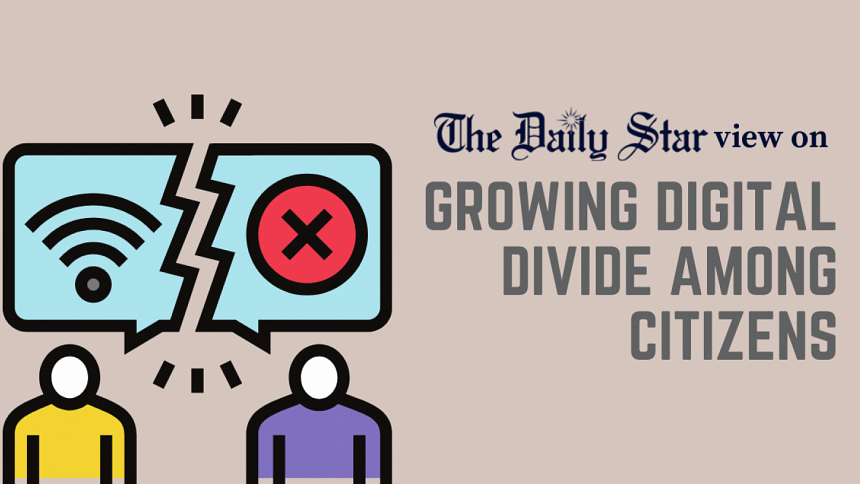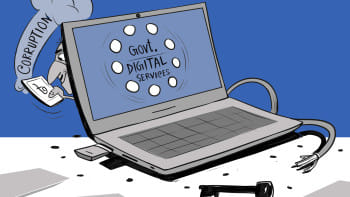Time to address growing digital divide in Bangladesh

It is disappointing to learn of the growing digital divide in the country, which once again came to the fore after the release of the preliminary report of the Population and Housing Census 2022. Reportedly, around three crore people over the age of 18 do not own a mobile phone, while 6.5 crore people from the same group do not use the internet. Access to a phone or internet is much less if you lower the age bracket. These figures emerge on the heels of a recent report that showed how people are not fully benefiting from the 761 digitalised government services due to bad servers, lack of user-friendliness, and slow internet speeds. Taken together, these findings make our dream of a "Digital Bangladesh" look more distant than one would have expected.
According to estimates by the GSMA, about half of the population remains unconnected to a mobile network, and only 31 percent are using mobile internet services. Some think that the low levels of mobile phone ownership and internet use are due to the fact that the government isn't allowing network operators to sell these as a package, as per our report. However, besides the business side of things, lack of digital literacy and access among the people is something that is not being considered with the urgency that it demands, especially with regard to Bangladesh's digital advancement and connectivity.
Many use internet for simple entertainment purposes. But when it comes to getting a service online, most of the population is not digitally literate enough to conduct the process seamlessly, and are often forced to employ the services of intermediaries to get what they need. This is not digital empowerment. And the fact that these online services are often poorly designed makes it all the more difficult for such citizens to become integrated into the digital arena.
The goal of digitalisation in any platform must be to make the lives of citizens easier, saving time and money. But recent data indicates that the government may only be undertaking digitalisation just for the sake of it, while bringing pre-existing challenges into the online services as well. We urge the government to improve the state of services currently being offered online before expanding their coverage. If the services are not easily accessible, it will hardly encourage citizens to increase their digital participation. At the same time, the government must help improve digital access and literacy so that citizens can get the maximum benefit out of the digital age.


 For all latest news, follow The Daily Star's Google News channel.
For all latest news, follow The Daily Star's Google News channel. 








Comments